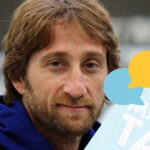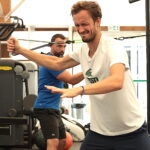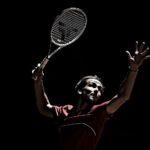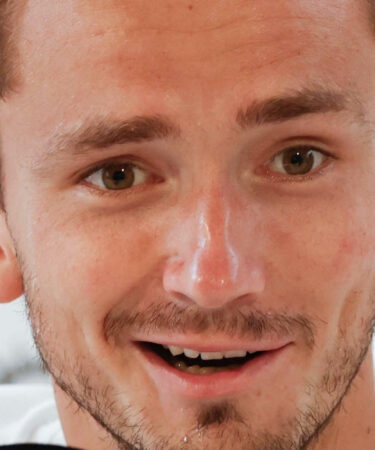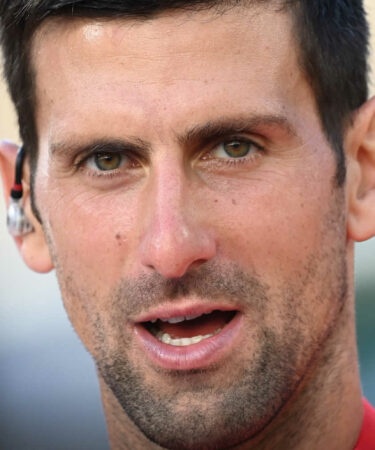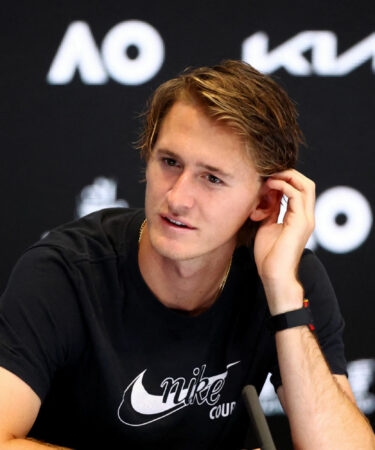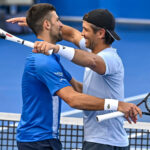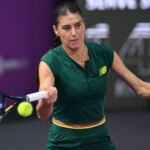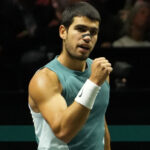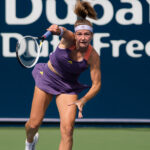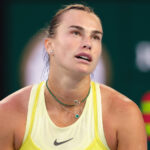Exclusive interview: Coach Cervara explains Medvedev’s resurgence: “Right now he’s a meteorite: the question is, how long can it last?”
The Frenchman tells Tennis Majors how he helped Medevdev overcome a loss of confidence to hit winning form again
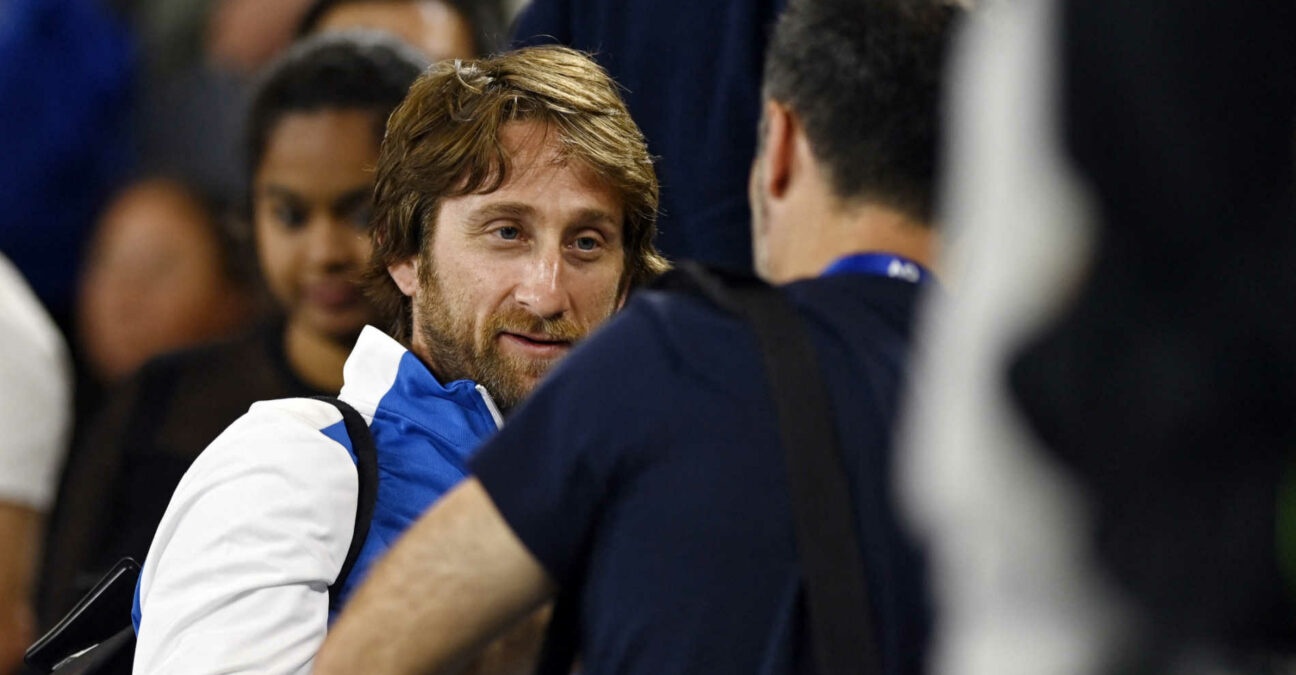 Gilles Cervara, 2023 | © AI / Reuters / Panoramic
Gilles Cervara, 2023 | © AI / Reuters / Panoramic
When Daniil Medvedev left Australia, having been beaten by Sebastian Korda in the third round, the Russian found himself suffering a crisis of confidence. Having been world No 1 and won his first Grand Slam title, he believed he was playing badly, even when his coach, Gilles Cervara, felt the opposite.
Together, the long-serving coach and player set about trying to figure out how to get Medvedev back on track. In an exclusive interview with Tennis Majors, Cervara tries to explain what was going through the Russian’s head, what he did to help him get out of it and now, with three straight titles behind him, how anything’s possible for Medvedev in the coming months.
Gilles, the first question is quite simple. Daniil Medvedev comes back from Australia after a third-round loss and drops out of the top 10. Then he wins three tournaments. What happened?
Gilles Cervara : When he comes back from Australia, the two weeks of training are very complicated because he has no confidence. He’s not winning, he doesn’t feel good, he doesn’t feel anything and you have to deal with that. That’s the beauty of the job, especially when it works at the back, but for a fortnight you have to navigate in a very uncertain space. A player like Daniil has his beliefs, his way of analysing and managing situations. Back from Australia, we are not at our best and we have to deal with it.
The three days before Rotterdam are very special. Daniil has doubts and everything is a source of explanation as to why he plays tennis badly.
Gilles Cervara
The three days before Rotterdam are very special. Daniil has doubts and everything is a source of explanation as to why he plays tennis badly. I try to accompany him, to react, to coach him as well as possible to show him that what he says is not the reality. Because I think he plays well. And it works quite well I think. In training, every time I intervene, it has a positive effect.
But the basis is that he tries to convince himself that he doesn’t play well. And I am convinced that he is playing well. I take it as a game where he tries to explain why he’s not playing well and I have to show him that everything is normal and that he’s playing well. Sometimes it’s tense but I intervene with this vision, to try to get him out of what he’s heading towards.
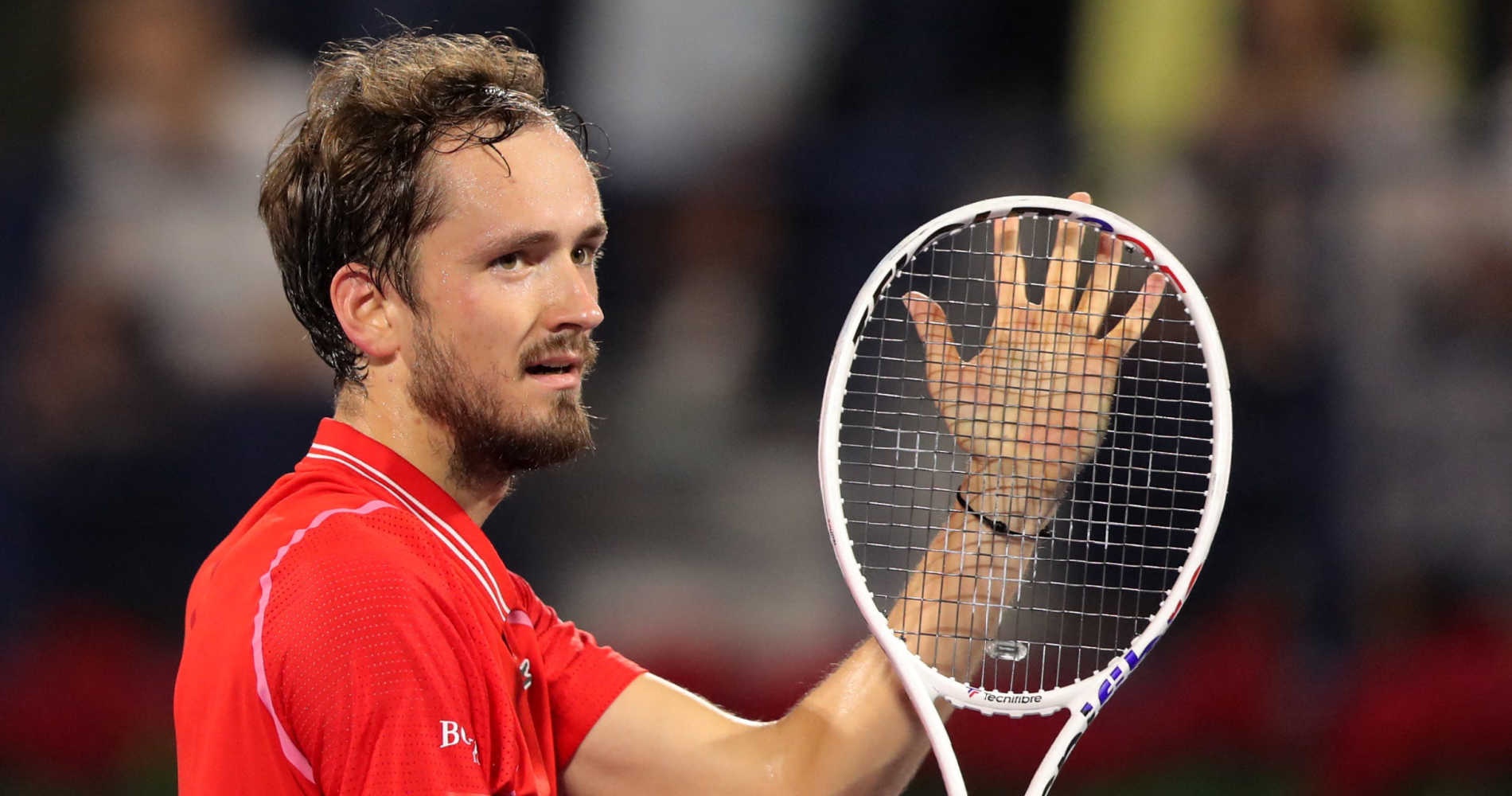
The day before the first match in Rotterdam, before training with Benjamin Bonzi, I said to him: “The exchanges we had on the court over the last few days were quite positive. We won’t be able to have them in the match. So during this training match, I won’t intervene. You’ll have to find the resources yourself. So I’m not talking to you at all. But so as not to leave you with nothing, I wrote a note on a sheet of paper and you use it if you need it. I’ve written down the different things I feel and perceive at the moment that could possibly help you”.
I put an envelope “Daniil, Rotterdam 2023” in his bag. He uses it during training and it’s the only set he doesn’t win all week. And then we have an exchange, always on this register. The only one I remember is: “It doesn’t work, it’s a foregone conclusion.”
First match against Alejandro Davidovich Fokina. There are many things that happen, during and after, that I can’t give details about. They are related to the intimacy of the team’s life. But after that – and this is where Daniil is remarkable and often incredible – when the thing lights up, it’s gone.
So the turning point was that match against Davidovich Fokina?
Gilles Cervara : It’s a whole thing. Because as I often say about Daniil, when he’s grumbling and looking for excuses, he’s mostly looking for a way to get there. I remember a training session with Felix Auger-Aliassime two days before, we are on the centre court. And what is happening is unreal. He’s looking for all the reasons why he can’t win. And I’m just standing there, as if I’m on ice, I’m deliberately not answering. I know he’s challenging me. And with me, things go up, my sensations go up so that I can give him, at the right moment, levers on which he can hang on. Because I know him, I feel that it’s getting inside him. I know that he will end up doing something with it. He has this amazing ability.
Once it’s in, once it’s on, everything that happens behind it, all the victories, it’s him, it’s just him. That’s where it starts and then it goes up in flames. Right now it’s a meteorite, it’s catching fire and it’s continuing its trajectory by being ignited. The question becomes: how long will it last? We have to make sure it lasts as long as possible and that it can continue there, in the Masters 1000. If the French Open is now, we win the French Open! (Laughs). Don’t write it like that: it’s an image, it’s second degree.
When he came back from Australia, his confidence was gone, nothing.
Gilles Cervara
We understand from listening to you that the Australian Open was a rather heavy event. Until then, Daniil was telling us the same thing as you: he was saying that he played well and that he was missing a detail.
Gilles Cervara : We had a great preparation. So in Australia, he was confident, we were coming out of three great weeks in terms of quality of play. All the indicators were green. In Adelaide, he ran into the best player in the world, (Novak) Djokovic, in the semi-final, so there was nothing to be ashamed of. Then he lost to the wrong guy at that point in the tournament, Sebastian Korda. That match gave us something to analyse, but I was still convinced after Australia that he had a great level, that he could go very far in the tournament and that we shouldn’t question a billion things. But yes, when he came back from Australia, his confidence was gone, nothing. What’s difficult is that you feel like there’s no grip, that nothing sticks, that everything can be a problem and you have to work your way through that.
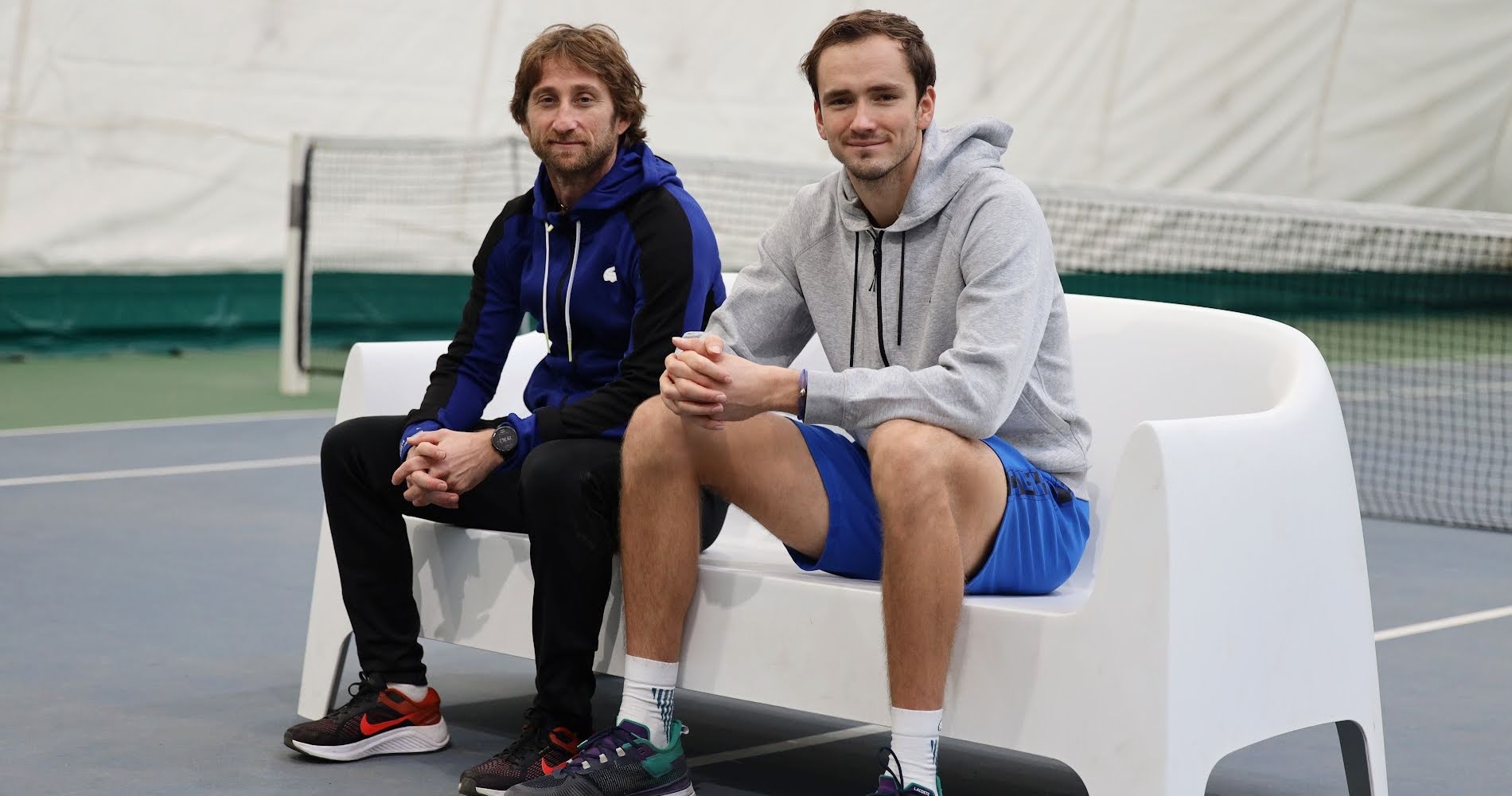
After the final in Dubai, we felt, especially with this little word on the camera, that his pride had really been at stake. Wasn't that ultimately the key to the mechanics? He took it on himself until the moment when the competitor took over from the rest.
Gilles Cervara : Yes, maybe. But was that what took over the rest or was it just a part of many other things? Because all great players have this ability to transcend themselves. Daniil is someone who doesn’t like to hear bad things about himself if he hasn’t done anything to people. He has this side: “I, Daniil, I didn’t do anything to you, leave me alone, let me play, why be a slanderer like that?” When he turns the tables, he remembers that and he says to those who criticised him: “Go to hell”.
He says there was a before and after Auger-Aliassime in Rotterdam.
Gilles Cervara : For me, it’s something else. Auger-Aliassime is on his way, actually. Davidovich is the start, Felix is the continuation of what has already happened. But Felix is a top 10 player, and it’s been a while since he beat one, so it’s created a benchmark moment.
Daniil saying he's not playing well and you saying he's playing well, is that something new or is it déjà vu?
Gilles Cervara : Yes, it reminds me of when he won Bercy and the Masters in 2020. He lost in Vienna (against Anderson in quarter-finals) and he was looking for any reason to explain that he was playing badly when he was having incredible moments. I remember telling him before the tournament that he had the right to put himself in the hole and think he was playing badly, but that it wasn’t my opinion. He could have moments that were a little bit more difficult, but besides that, he was playing at a very high level at times and that it wasn’t as bad as he wanted to see it.
When you reach this level of confidence, it has a multiplier effect. That’s also why I say it can go on for a long time.
Gilles Cervara
Beyond the three trophies, you get the impression that he is playing better and better. He finished Dubai by not dropping a set to Djokovic and pulverising Rublev.
Gilles Cervara : Yeah, right now that’s it. Daniil talks about it as if it’s something magical. So yes, the effect is magic, but the process of being confident, at this level of confidence, is a process that is built every day. When you reach this level of confidence, it has a multiplier effect. That’s also why I say it can go on for a long time.
He's probably tired. And obviously he has no reason to set a limit for Indian Wells and Miami. How do the two parameters combine?
Gilles Cervara : Yes, with the long trip, the time difference, you have to be careful. The euphoric effect of the victories and the confidence also invites us to remain precise, vigilant on the different things to do to remain at the level. Because we know that things can quickly go wrong if we rely solely on confidence.
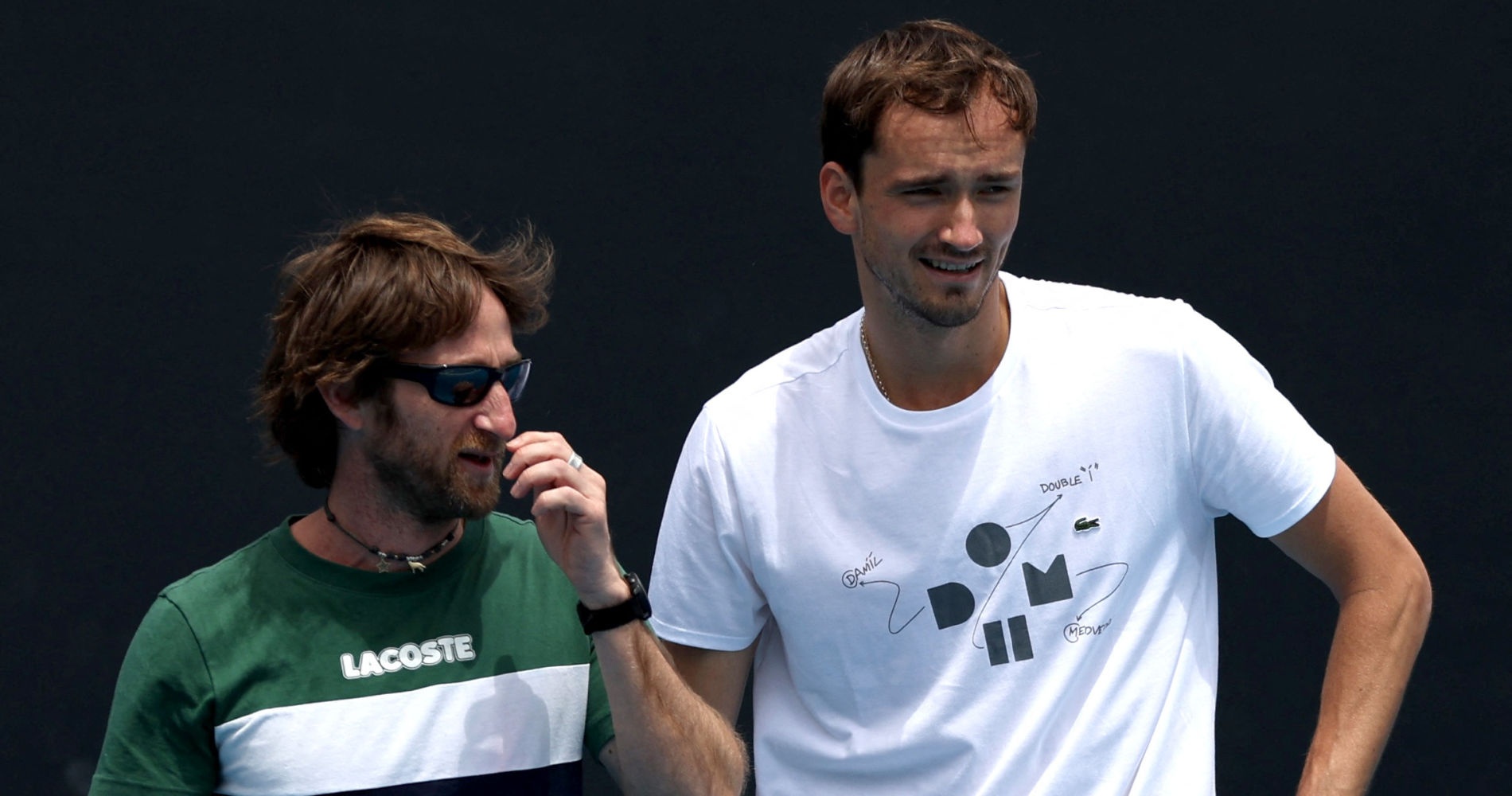
He's never won Indian Wells and Miami even though he's a true hard court specialist. He hasn't won a major title since the 2021 US Open. From a distance, you can imagine him being very ambitious before the Sunshine Tour.
Gilles Cervara : It gives a lot of hope and expectation. That he’s going there to win and that there’s a hopefulness that’s emerging from the context, yes, absolutely.
He's always lost early in Indian Wells and never made it past the quarter-finals in Miami. Are there any objective reasons for that?
Gilles Cervara : He’s never really liked playing in the desert, but Doha and Dubai just swept that aside. He thought it was impossible to play well there. It’s not. But it’s going to be different because playing in Indian Wells is very specific with the surface, the heat, the cold, the dryness, the balls… Miami is something else, but there’s no reason he can’t play well there. In the past, his approach to the playing conditions and how he feels about his tennis at the moment has brought his level down.
Yes, it challenged me, I had to dig deep inside myself. And it’s true that when he won Rotterdam, I had a kind thought about some of the things I did and said during those three weeks.
Gilles Cervara
In order to get Daniil back to that level, did you have to push your own limits as a coach or did you do it the way you always do?
Gilles Cervara : I did what I know how to do in the way I handle situations. I think, I try to calibrate myself to take in and understand what is going on, to know where I stand so I can find the best possible words, what the player needs. Tennis work and training is almost easy. You have your work objectives, you find your ways of working. What is not anecdotal is the posture of the coach as a person, to adapt to what is happening. I do it with my inner self, with what I think and what I believe, even if there are sometimes things that are not easy to say and hear, like between Australia and Rotterdam. But it seems to me to be essential not to suffer the situation.
We feel that you have perhaps drawn more from yourself than usual.
CERVARA: Yes, it challenged me, I had to dig deep inside myself. And it’s true that when he won Rotterdam, I had a kind thought about some of the things I did and said during those three weeks, before Rotterdam and after the first round, that make me proud of myself.


